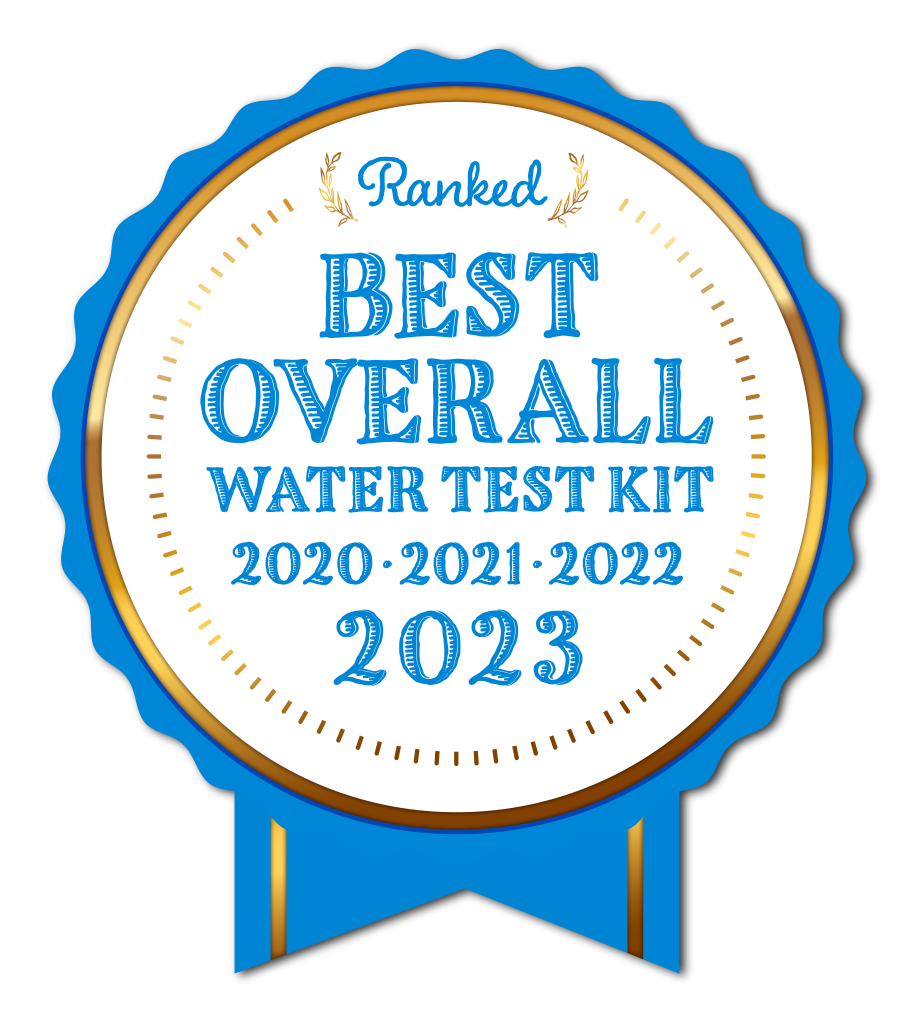ACETONITRILE

Acetonitriles are produced during water chlorination from naturally occurring substances like algae. Safe Home offers a couple kits that provide drinking water testing for acetonitrile in city and well water supplies.
Parameter Type: Drinking Water Testing for Metals
Parameter Name: Acetonitrile
What it is and Where it Comes From:
Acetonitrile, often abbreviated MeCN (methyl cyanide), is the chemical compound with the formula CH3CN. Acetonitrile is a toxic, colorless liquid with an ether-like odor and a sweet, burnt taste. It is an extremely dangerous substance and must be handled with caution as it can cause severe health effects and/or death. It is produced mainly as a byproduct of acrylonitrile manufacture. Acetonitrile is easily ignited by heat, sparks, or flames and gives off highly toxic hydrogen cyanide fumes when heated. It dissolves easily in water. It can react with water, steam, or acids to produce flammable vapors that can form explosive mixtures when exposed to air. Acetonitrile is used to make pharmaceuticals, perfumes, rubber products, pesticides, acrylic nail removers and batteries. It is also used to extract fatty acids from animal and vegetable oils. Drinking water testing gives you several benefits like peace of mind, identifying contaminants in your water, and insight into health concerns. Safe Home offers Laboratory drinking water testing kits for acetonitrile, allowing you to collect your water sample and ship it directly to our EPA-Certified Laboratory. This platform of drinking water testing for acetonitrile will give you an accurate level based on the lowest level of a parameter our instruments can detect (Method Detection Level). Safe Home drinking water testing for volatiles can be used for city and well water supplies. Drinking water testing should be done any time you notice a significant change in your water quality.
Health Effects:
Long-term effects can include enlargement of the thyroid gland can last for months or years. Headaches, numbness, anorexia/lack of appetite, dizziness, weakness, and tremor can occur. Animal studies suggest that exposure to acetonitrile can cause increased birth defects and lower birth weight. No information is available on the reproductive effects in humans. However, pregnant women should avoid contact with acetonitrile. Exposure to acetonitrile can affect the liver, lungs, kidneys, and the central nervous system.
Solutions to Contaminant Levels:
After drinking water testing, what is the next step? Acetonitrile can be reduced by distillation. The distillation process involving the conversion of a liquid into vapor that is subsequently condensed back to liquid form. It is exemplified at its simplest when steam from a kettle becomes deposited as drops of distilled water on a cold surface. Distillation is used to separate liquids from nonvolatile solids, as in the separation of alcoholic liquors from fermented materials, or in the separation of two or more liquids having different boiling points, as in the separation of gasoline, kerosene, and lubricating oil from crude oil. Drinking water testing should be done once at least once a year to monitor contaminants in water supplies. Who do I need to contact to find out more information about water quality in my area? Every community water supplier must provide an annual report to its customers, known as a Consumer Confidence Report (CCR). The report provides information on your local drinking water quality, including the water’s source, contaminants found in the water, and how consumers can get involved in protecting drinking water. How often does the local public water system preform drinking water testing? Frequency of drinking water testing depends on the number of people served, the type of water source, and types of contaminants. Certain contaminants are tested more frequently than others, as established by the Safe Drinking Water Act. You can find out about levels of regulated contaminants in your treated water for the previous calendar year in your annual Consumer Confidence Report (CCR).


